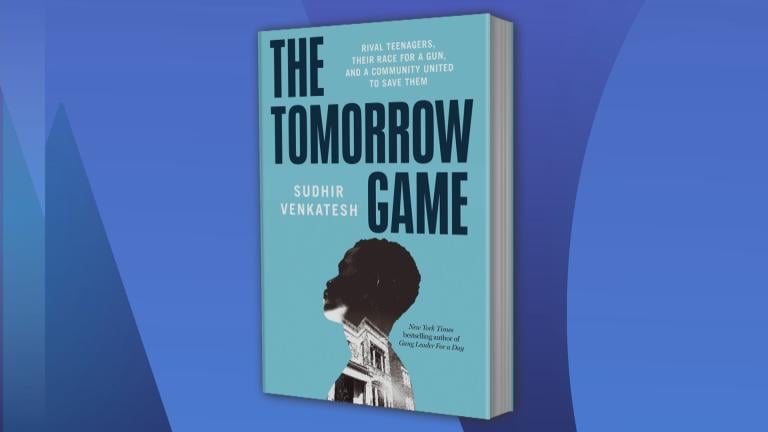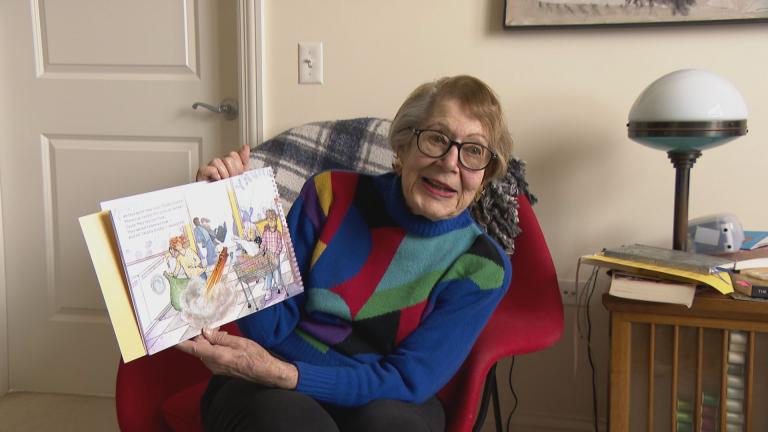As many as 25,000 complaints claiming age discrimination have been filed each year since 2008, according to the U.S. Equal Employment Opportunity Commission.
That’s one of the reasons why Patti Temple Rocks, a senior partner and head of client engagement at marketing agency ICF Next, calls ageism the last socially acceptable "ism" in our culture.
“We should talk about it. It’s the one ‘ism’ that will ultimately affect us all,” she said. “We’re all going to get old, we’re all going to age.”
Temple Rocks makes the case for increased awareness about ageism and age discrimination in her new book, "I'm Not Done: It's Time to Talk About Ageism in the Workplace.”
The book details stories of employees in their 40s, 50s and 60s who've experienced ageism in the workplace, and tips for business leaders who wish to address it.
Temple Rocks joins us in discussion.
Below, an excerpt from “I'm Not Done.”
Chapter 4: The Dollars & Sense of Ageism in the Workplace
The other type of age discrimination claim turns on wrongful termination. Wrongful termination isn’t always a clearly identifiable firing or layoff. More commonly, it’s the “make them so miserable they will quit” approach, which I’ve discussed previously. This can take many forms, such as excluding an older worker from some meetings all of a sudden, giving younger workers plum assignments, better sales territories, or better technology, and making an older worker feel forced to accept a role that isn’t a good fit. If there is a pattern of such behavior, it can be interpreted as age discrimination.
Employers take this approach because they don’t want to fire the older worker and hope that either the older worker will solve the problem for them by quitting. Sometimes they use the “miserable job” as a place to put a worker they deem disposable. More often than not, this is an older employee. One gentleman I spoke with had this happen to him; in the back of his mind, he knew the company wanted him to leave for financial reasons, but he needed the job. As such, when he was asked to take the “miserable job,” he said yes. After many months, he asked for a change, and he was told by HR, “Well, you lasted a lot longer than we thought you would!” That was followed by HR telling him there was no other suitable role, so they would “accept his resignation.”
This type of ageism is often preceded by psychological damage and general diminishment of the person. Back to my ever-so-wise attorney friend Sue Ellen, who observed:
All of sudden, once-valued employees feel less valued – they are forced into a role that no longer utilizes their strengths, they aren’t invited to key meetings, they are literally and figuratively being muted – if not silenced, and it can become a self-defeating cycle because the natural reaction when this happens is to doubt yourself when in reality nothing has changed about your abilities as much as the organization’s natural inclination to gravitate towards the next shiny thing. And once that starts to happen to someone it can really wear them down, so this idea of leaving – either voluntarily or not – starts to sound like a plausible idea.
This is essentially what is meant by the infamous phrase “put out to pasture,” and it happens much more often to older workers. They are just not involved in the way that they used to be involved, so it becomes this self-defeating cycle of yuck. Because if you’re not in the thick of things, your opinions are not going to be as well-informed. Then when you do get the chance to participate or give an opinion, it might not be as savvy or as spot-on as it used to be because you have started to doubt yourself and your ability to deliver value.
As humans, we are at our happiest when we feel involved, valued, and needed. When you no longer feel that in your workplace, particularly as an older worker who has been invested in a career for 30 or 40 years, it feels almost like a loss of identity. It’s almost like the stories you hear of one spouse dying followed quickly by the other. And after interviewing dozens of people, I can confirm that it hurts. A lot. Their hurt was palpable in each and every one of my interviews.
It’s a real ego blow to be treated this way. It’s hurtful. These are people who have spent most of their careers being highly valued, and then they all of a sudden get to a place where they start to wonder, when did I become invisible?
I think that’s partly why I opted to move on when I experienced this myself. I got some really good advice from a senior-level recruiter who I’ve known for a long time: he said, “The minute it [staying in the job] starts to erode your self-confidence, you have to get out of there.”
I’m blessed with a fair degree of self-confidence, and it’s a lot easier for me than I think it is for a lot of people. I was also in a position where I could quit—that’s not true for everyone.
Age discrimination also takes a heavier toll than other forms of discrimination on the health of victims. Boomers who want to keep working often need the income and health insurance that comes with full-time employment. Taking that away from them places a greater burden on public resources. In a statistic that shocked and horrified me, according to the AARP, those who lose their jobs past age 58 are at the greatest health risk, and on average, lose three years of life expectancy if they don’t find another job.
A work study conducted by AARP in 2017 found that age is the leading reason for negative treatment by an employer. Participants were asked: “Thinking about how you are personally treated in the workplace, would you say the following generally caused your employer to treat you better, worse or no differently: age, race/ ethnicity, gender, disability, sexual orientation, religion, veteran status?” Notably, age was the leading reason, and it was nearly double race and more than double gender. This underscores the negative psychological and physical effects experienced by older workers subject to age discrimination.
Related stories:
At 102, This Longtime Chicago Pianist Has Still Got the Chops
Best-Selling Author Shares Planner for Life’s Biggest Eventuality: Death
Survey: Nearly Half of Chicago Seniors Have Considered Moving Away








